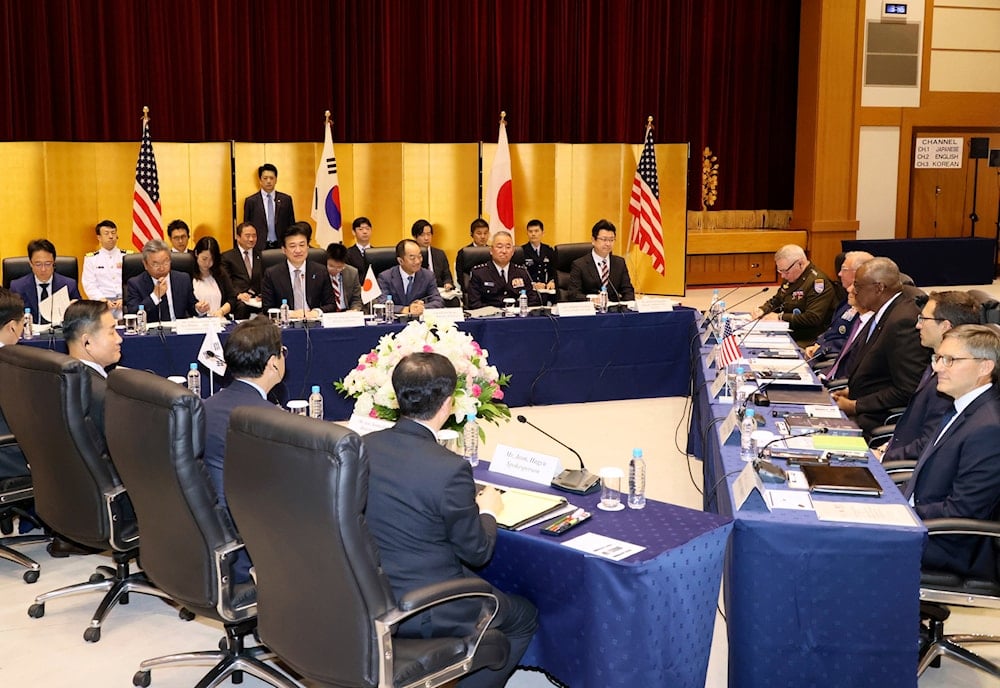US, Japan to establish joint operations command
The United States and Japan announce the establishment of a new defense agreement aimed at bolstering their military cooperation.
-

US Secretary of Defense Lloyd Austin, South Korean Defense Minister Shin Won-sik, and Japanese Defense Minister Minoru Kihara hold talks at Japan's Defense Ministry in Tokyo, July 28, 2024 (AP)
The United States and Japan established a Joint Operations Command (JJOC) to bolster military collaboration between the two nations, the Washington-Tokyo Security Consultative Committee said in a joint statement, which was released by the US Department of Defense on Sunday.
The initiative was agreed upon by key officials from both countries, including US Secretary of State Antony Blinken, Secretary of Defense Lloyd Austin, Japanese Foreign Minister Yoko Kamikawa, and Defense Minister Minoru Kihara.
"The United States welcomed Japan's reinforcement of its defense capabilities, including the sustained increase in its defense budget, the creation of the Japan Self-Defense Forces (JSDF) Joint Operations Command (JJOC), the focus on cybersecurity, and the possession of counterstrike capabilities," the statement read.
According to the statement, Washington and Tokyo plan to enhance their military cooperation by aligning decision-making processes and coordinating military plans and exercises.
The agreement will include greater interoperability on joint bilateral operations such as intelligence, surveillance, and reconnaissance (ISR) activities, training and exercises, operational planning, contingency planning, and logistics.
The newly established JJOC aims to enhance readiness to address emerging threats in the Indo-Pacific region and strengthen deterrence capabilities, the two parties underlined.
US planning to upgrade command structure in Japan
The US currently has about 54,000 military personnel in Japan who report to the Indo-Pacific Command in Hawaii, which is approximately 6,500 kilometers away and 19 hours behind.
This new command will align with Japan's planned Joint Operations Command for all its armed forces, enhancing the agility of both militaries in the event of a crisis involving Taiwan or the Korean peninsula.
The discussions between Japan and the US were also set to explore the development of Washington's "extended deterrence" commitment, which includes using military capabilities, such as nuclear weapons, to defend Japan.

 4 Min Read
4 Min Read








